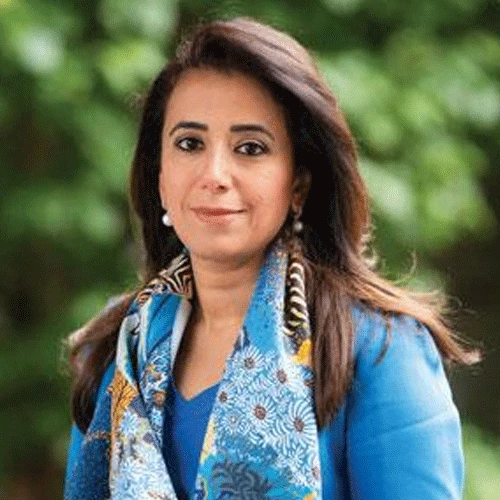By Hanan MORSY
This year’s spring meetings of the International Monetary Fund and World Bank have made it clear that the global financial system, strained by repeated crises, is no longer fit for purpose.
Growth is decelerating, climate-related volatility is rising, and debt distress is deepening, but the available policy tools remain too cumbersome, fragmented, and inefficient.
Africa has long borne the brunt of these failures. But rather than merely calling for reform, African governments are increasingly advancing solutions, building institutions, and introducing innovations to help create an international financial system that allocates capital more efficiently and is equipped to handle escalating shocks and widening inequalities.
While calls for reform are often framed as a matter of fairness, the more pressing issue is efficacy.
The global financial system fails to provide sufficient liquidity during crises, invest in climate adaptation, channel capital to high-return yet underfinanced green-sector opportunities, and resolve sovereign-debt disputes quickly enough to preserve development gains. It is economically dysfunctional and ultimately destabilizing.
That is why African countries have championed international debt reform and local-currency financing in recent years, urging multilateral development banks (MDBs) to take on a more active role.
These proposals reflect a growing recognition that structural failures raise risk premiums, deter investment, and leave national economies increasingly exposed to external shocks.
Debt distress is the most urgent and systemic threat to global development. More than 30 African countries currently spend more on servicing external debts than on health and education.
While the IMF’s Global Sovereign Debt Roundtable Playbook encourages creditors and borrowers to come to the table sooner and emphasizes the need for transparency, its impact remains limited by a lack of enforceability.
African governments have responded by calling for a debt resolution framework that is predictable, rules-based, and responsive to development needs.
Today’s system – plagued by delays, elevated risk premiums, and poor creditor coordination – fails to align incentives, contain spillovers, and mobilize private investment.
Fortunately, South Africa’s G20 presidency provides a unique opportunity for the continent to push for bold reforms that reframe debt not as a liability but as a growth catalyst.
One notable example of African efforts to redesign the global financial system is the proposal to repurpose special drawing rights (SDRs, the IMF’s reserve asset) as hybrid capital for MDBs.
This idea, advanced by the African Development Bank and the G24, would allow SDRs to be leveraged while retaining their reserve-asset status, thereby creating more space for concessional lending.
Several MDBs are now considering the proposal as a way to strengthen their balance sheets and expand lending capacity.
Similarly, regional institutions like the Trade and Development Bank and the Arab Bank for Economic Development in Africa (BADEA) are advancing pooled credit enhancements, South-South financing platforms, and climate-finance mechanisms tailored to fragile contexts.
These are not just innovations – they are viable templates that global policymakers should adopt and scale.
To be clear, public financing alone cannot mobilize the volume of investment needed to boost growth, build resilience, and accelerate the climate transition.
But private capital flows continue to bypass many African economies, deterred by perceptions of high risk, rising borrowing costs, limited financial instruments, and weak project pipelines.
Instruments like credit guarantees, blended finance, and first-loss capital could help rebalance risk-return profiles and attract private investment. But to be effective, they must be deployed at scale, not confined to pilot projects.
Equally critical are upstream reforms that strengthen legal frameworks and institutional capacity in order to develop a strong pipeline of investable projects.
Africa’s experience shows that MDBs must support both downstream and upstream investment. A persistent blind spot is the failure to promote local-currency finance and domestic capital market development.
Over-reliance on foreign-currency borrowing exposes African countries to market volatility and raises debt-service costs. Yet MDBs and development partners continue to treat local-currency instruments as fringe or experimental.
They shouldn’t.
Brazil’s Tesouro RendA+ and Educa+ programs can serve as a useful model, demonstrating the potential of inflation-adjusted, retail-accessible savings instruments.
These tools, delivered through mobile apps and gift cards in increments as low as $1, have successfully mobilized long-term domestic capital while fostering financial inclusion. Likewise, the Pan-African Payment and Settlement System (PAPSS) – now operational across multiple central banks – is enabling cross-border trade in local currencies, addressing market frictions, and providing a blueprint for building a more resilient financial system.
To respond effectively to climate-related shocks, Africa needs a comprehensive toolkit that includes debt-for-climate swaps, green bonds, and concessional financing facilities capable of attracting private investment in adaptation measures.
While the IMF’s Resilience and Sustainability Trust is a step in the right direction, it must be scaled up significantly. More importantly, it must mobilize greater private-sector investment and climate finance.
The challenge is not only to create new instruments, but also to improve implementation. MDBs and donors must simplify access, enhance coordination, and incorporate climate resilience into national investment strategies.
Africa’s priorities – timely debt resolution, upstream-investment readiness, local-currency borrowing, and large-scale climate finance – are not merely regional demands. They are systemic solutions that would make the global financial system more responsive and better prepared to withstand future crises.
In a world increasingly plagued by compounding shocks and capital scarcity, African governments are advancing actionable, forward-looking solutions that address the financial system’s most persistent blind spots.
South Africa’s G20 presidency is elevating this agenda, sending a clear signal that Africa is not asking to join the global debate – it is helping to shape it.
Hanan Morsy, Deputy Executive Secretary and Chief Economist at the United Nations Economic Commission for Africa, is a member of the G20 Africa Expert Panel established under South Africa’s G20 presidency.










